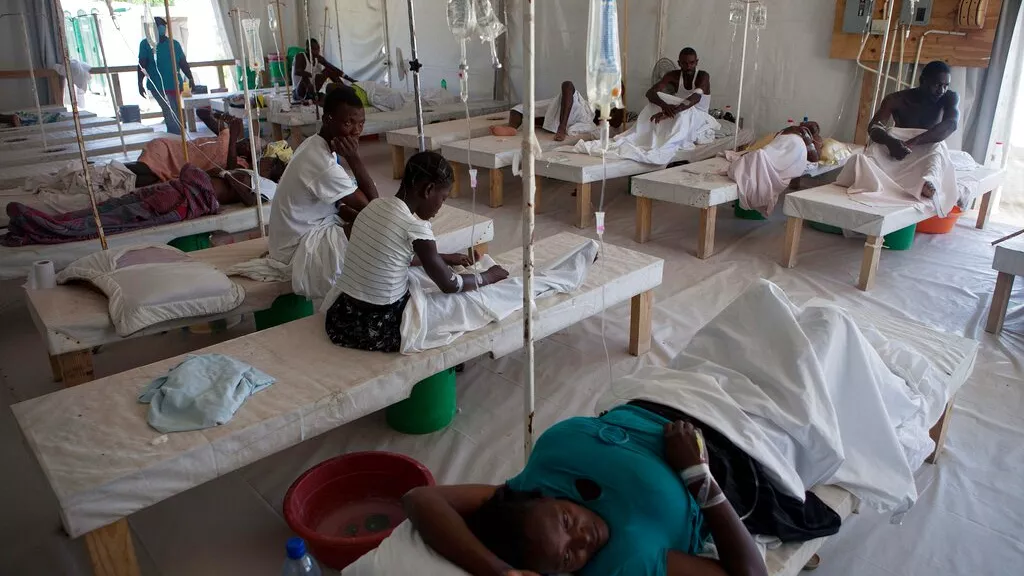Zambia Partners with China to Launch First Cholera Vaccine Manufacturing Facility
2 min read
Haitians suffering from cholera symptoms rest at the treatment center in Mirebalais, Haiti,

Haitians suffering from cholera symptoms rest at the treatment center in Mirebalais, Haiti,
Zambia has officially signed a Memorandum of Understanding (MOU) with China to establish its inaugural cholera vaccine manufacturing plant, a significant step in enhancing the nation’s public health response. This initiative, unveiled on Monday, aims to bolster Zambia’s ongoing battle against cholera, a disease that has significantly affected the health and productivity of its population.
The project’s first phase will require an investment of $37 million and will be developed through a collaborative effort between Zambia’s Industrial Development Corporation (IDC) and China’s Jijia International Medical Technology Corporation. Once operational, the facility is expected to produce approximately three million doses of cholera vaccine each year, addressing a pressing public health need.
During the signing ceremony in Lusaka, Zambian President Hakainde Hichilema underscored the project’s significance in the fight against cholera, emphasizing the potential for Zambia to emerge as a manufacturing hub for vaccines in Africa, especially as the continent’s population continues to expand rapidly. “This partnership demonstrates that Zambia, Africa, and the international community can work together effectively. Our goal is to position Zambia as a manufacturing center to cater to larger markets,” Hichilema stated.
The president also highlighted the urgency of the project, insisting on the necessity to streamline processes and eliminate bureaucratic obstacles that could delay its progress. Recognizing the life-saving nature of the vaccine production, he stressed that timely implementation is crucial. As part of the agreement, China will provide Zambia with three million doses of cholera vaccine before local production commences.
Cholera remains a significant public health concern in Zambia, particularly during the rainy season, despite being a treatable disease. Earlier this year, the country experienced a severe cholera outbreak that resulted in over 400 deaths and affected more than 10,000 individuals. Such statistics underline the critical need for effective prevention and vaccination strategies.
The establishment of a local cholera vaccine manufacturing plant not only aims to mitigate the impact of future outbreaks but also positions Zambia to contribute to regional health security. By increasing access to vaccines, the country can better protect its population and potentially assist neighboring nations facing similar health challenges.
This initiative aligns with global health goals aimed at eradicating cholera and other preventable diseases. With the support of international partners, Zambia is taking proactive steps to enhance its healthcare infrastructure and ensure that lifesaving vaccines are readily available to those in need.
In conclusion, the partnership between Zambia and China marks a pivotal moment in the nation’s public health efforts. The establishment of a cholera vaccine plant is expected to save lives and fortify Zambia’s position as a key player in health manufacturing within Africa. As the project unfolds, the focus will remain on overcoming challenges to ensure that the facility can operate efficiently and fulfill its mission to protect the health of Zambians and contribute to the broader fight against cholera on the continent.